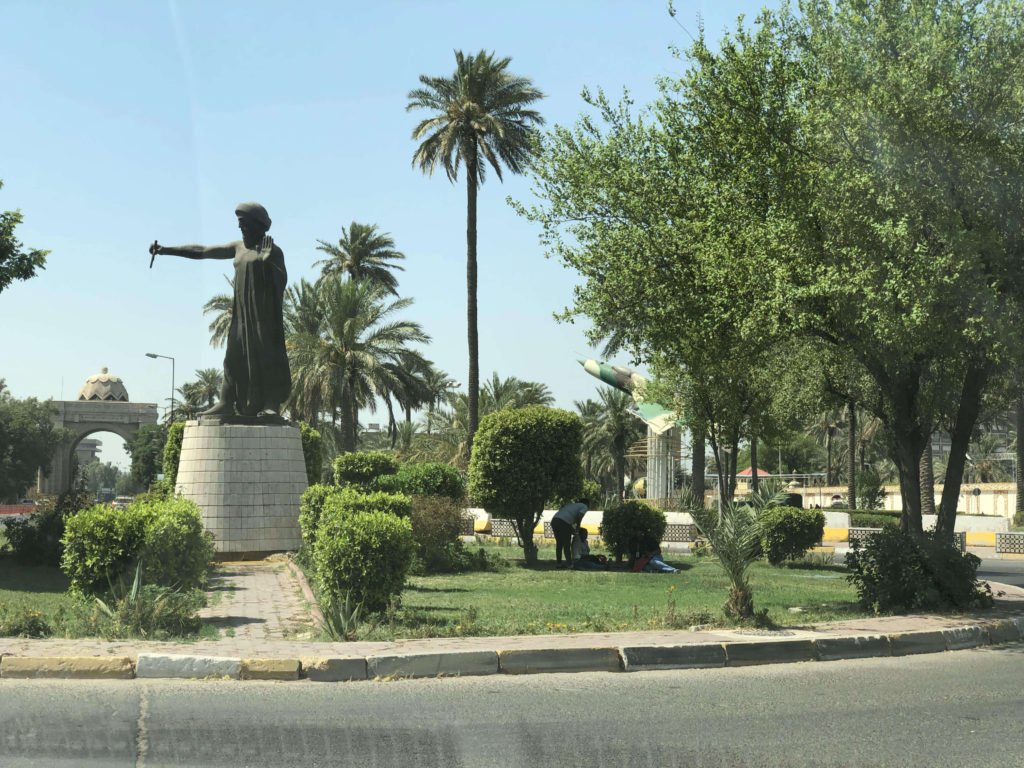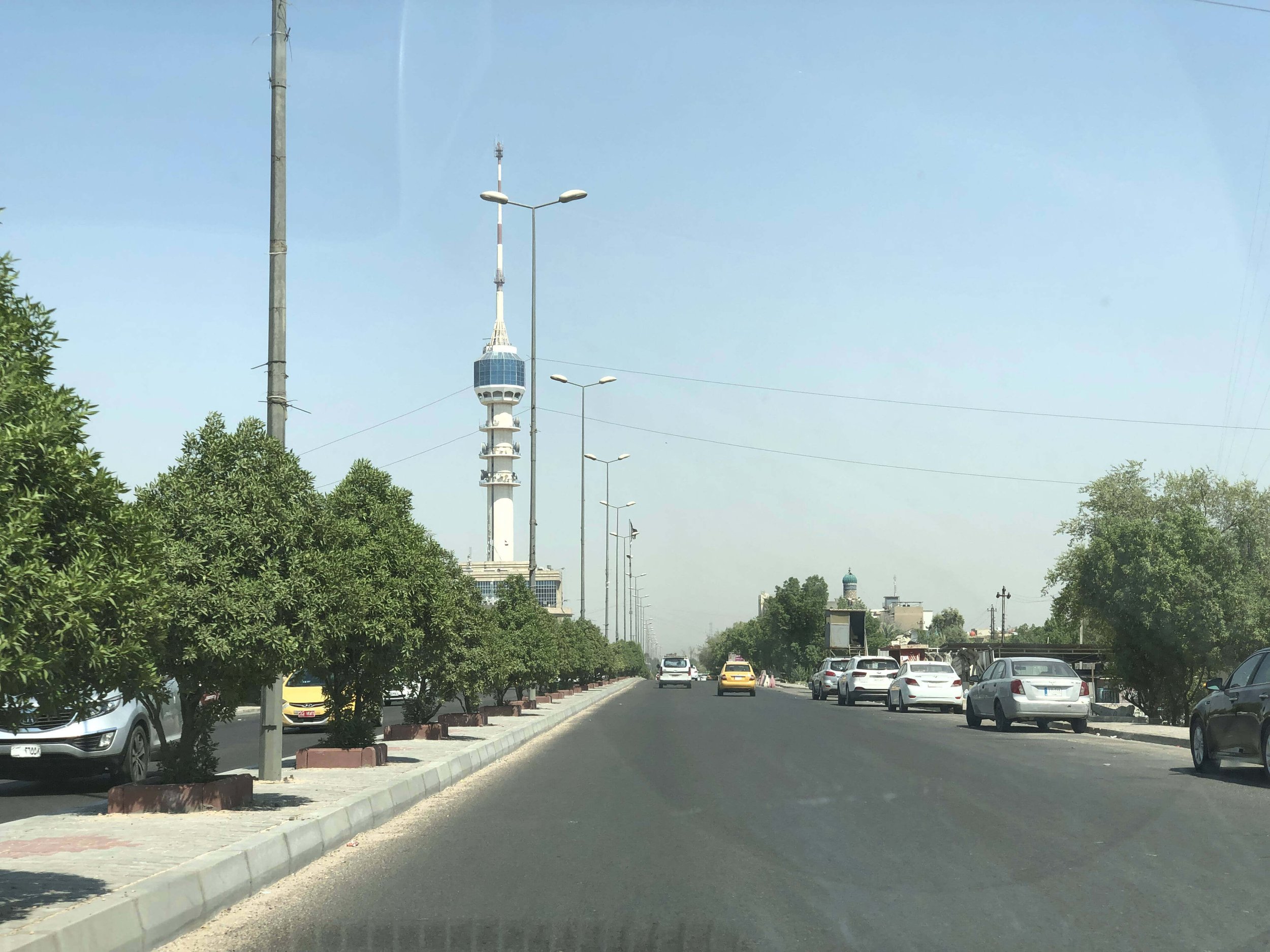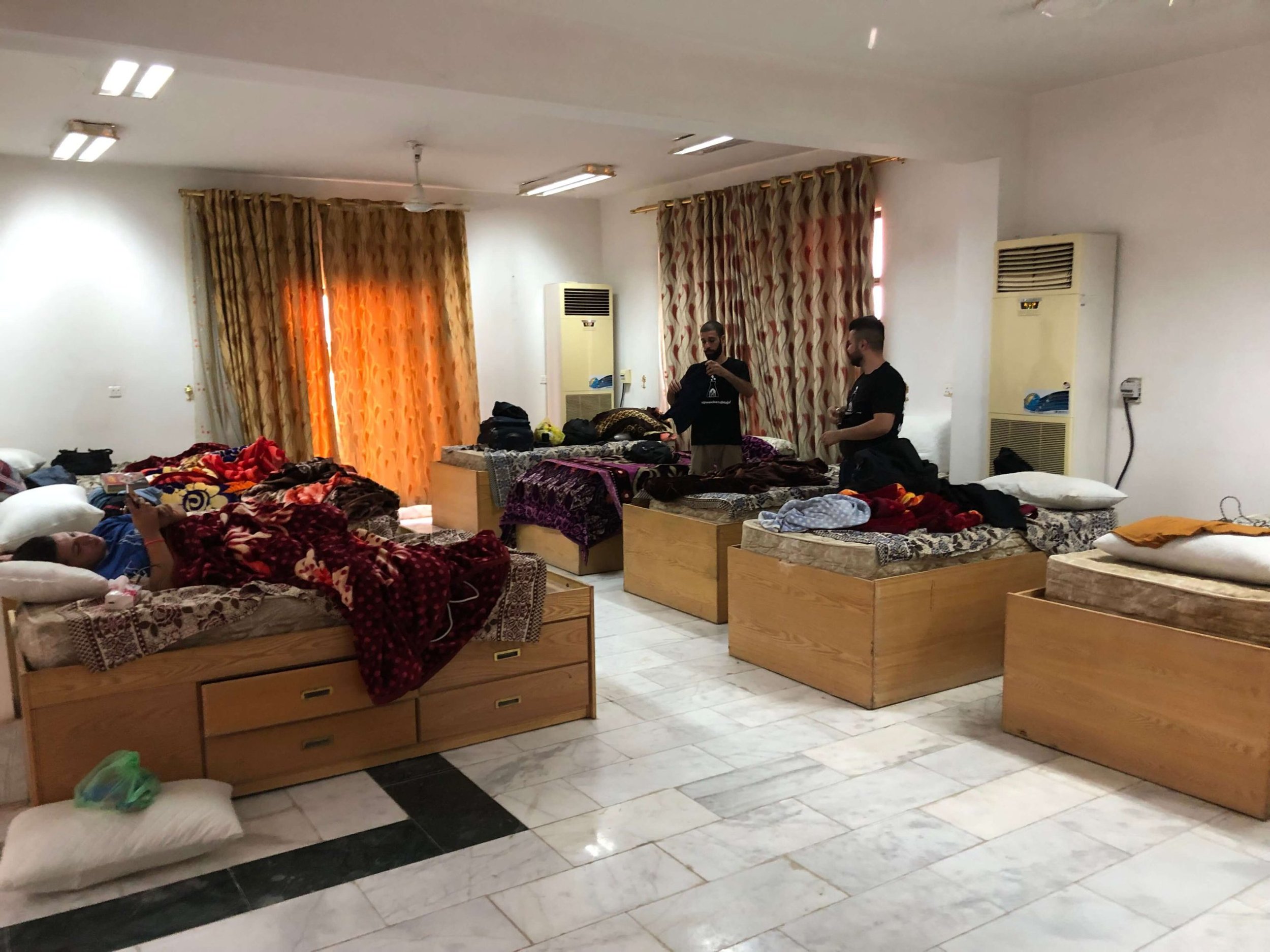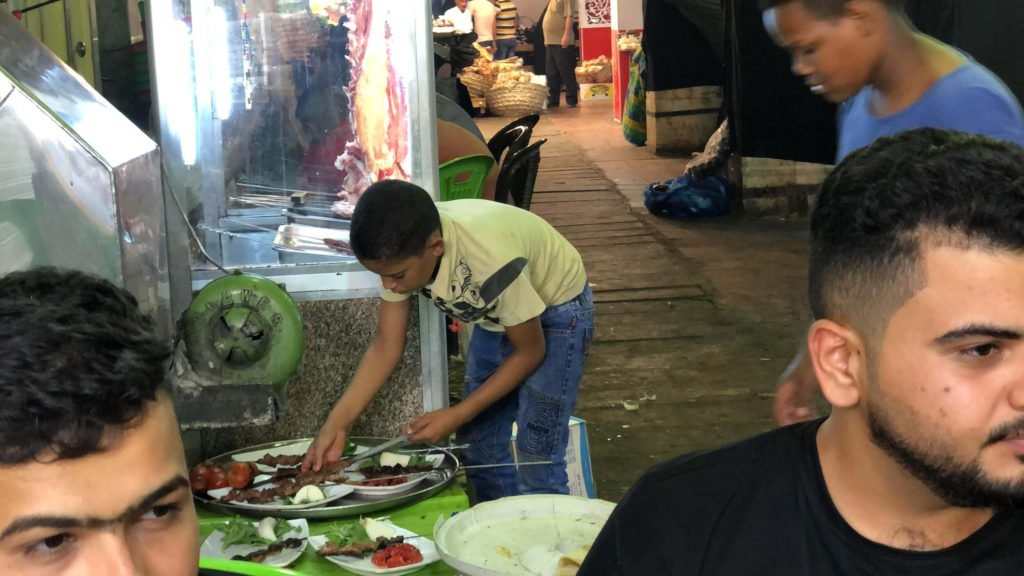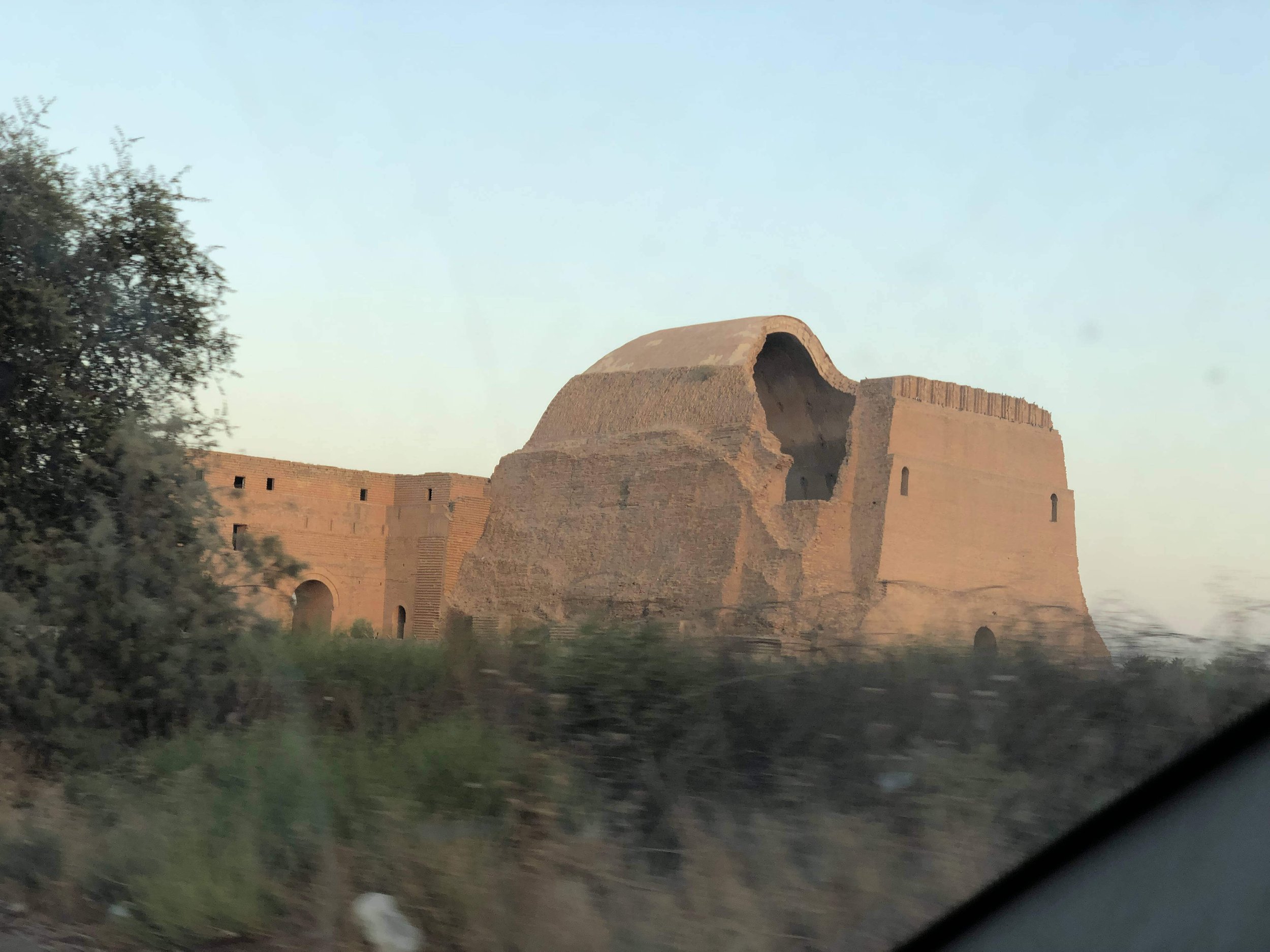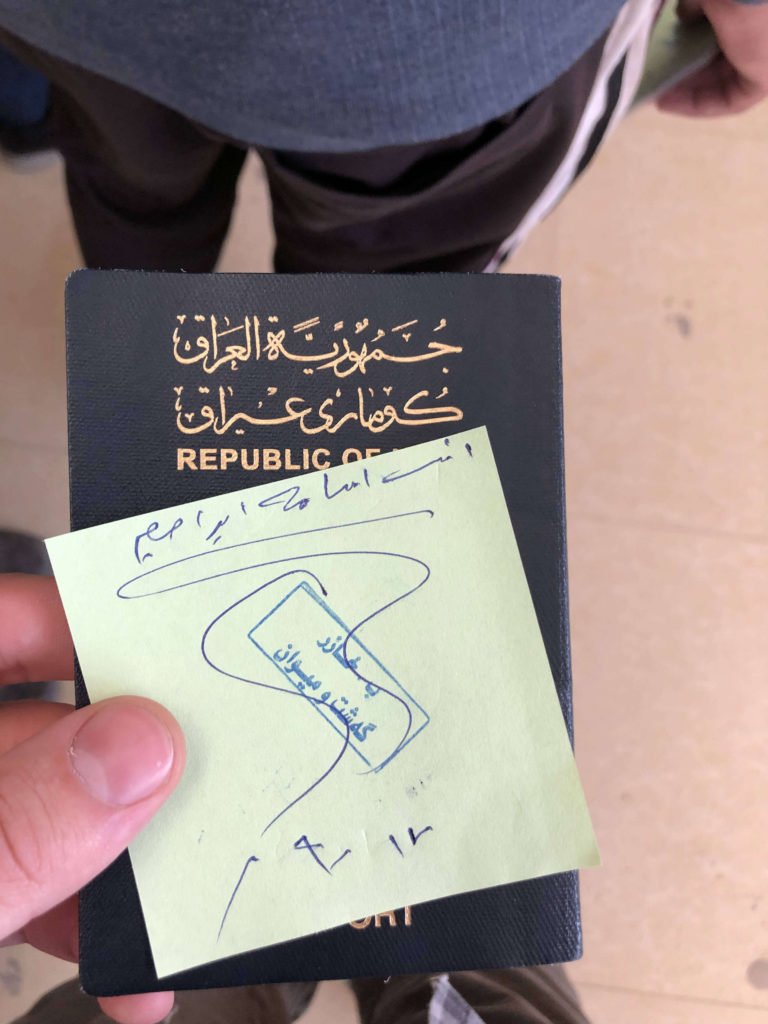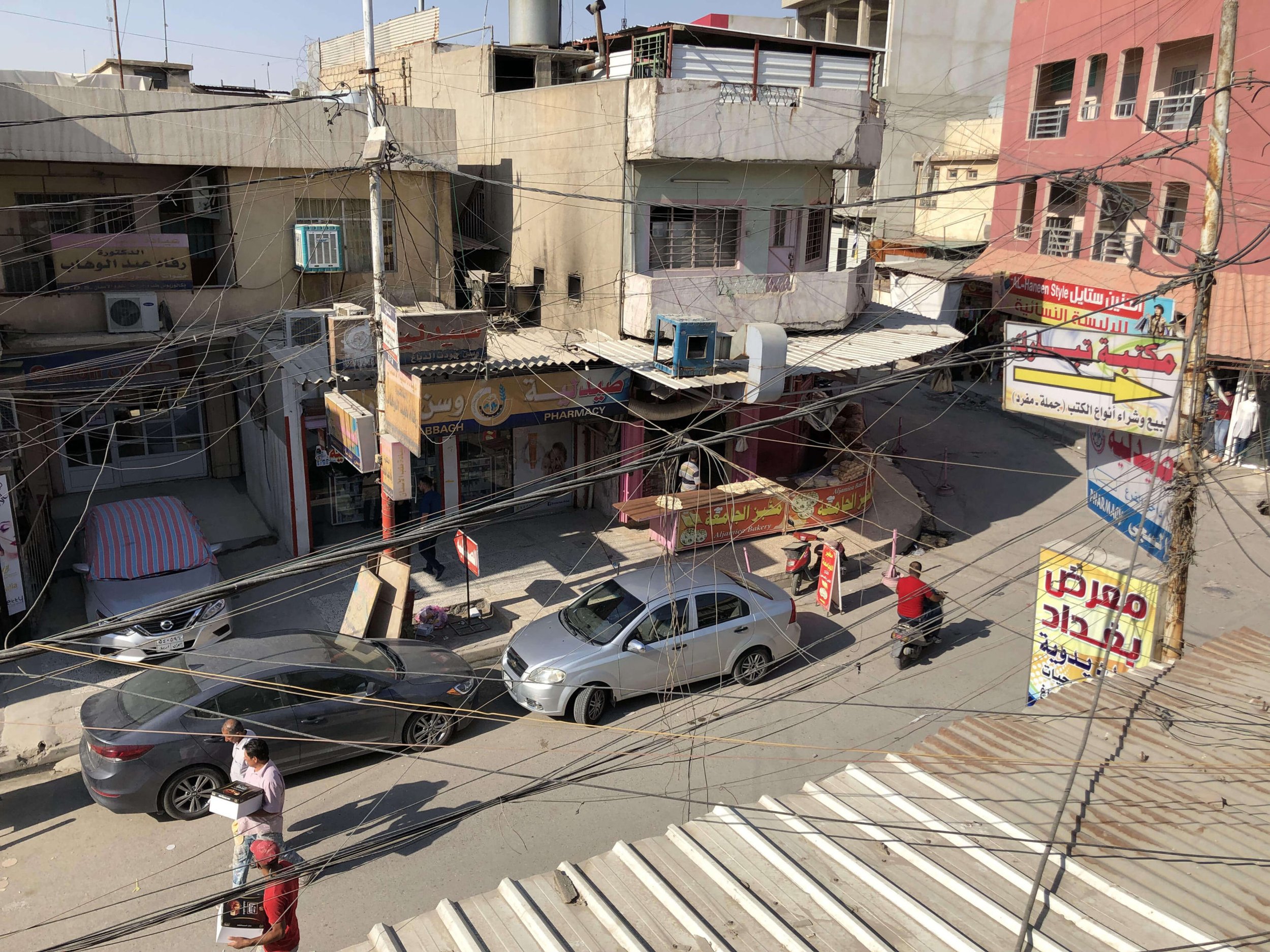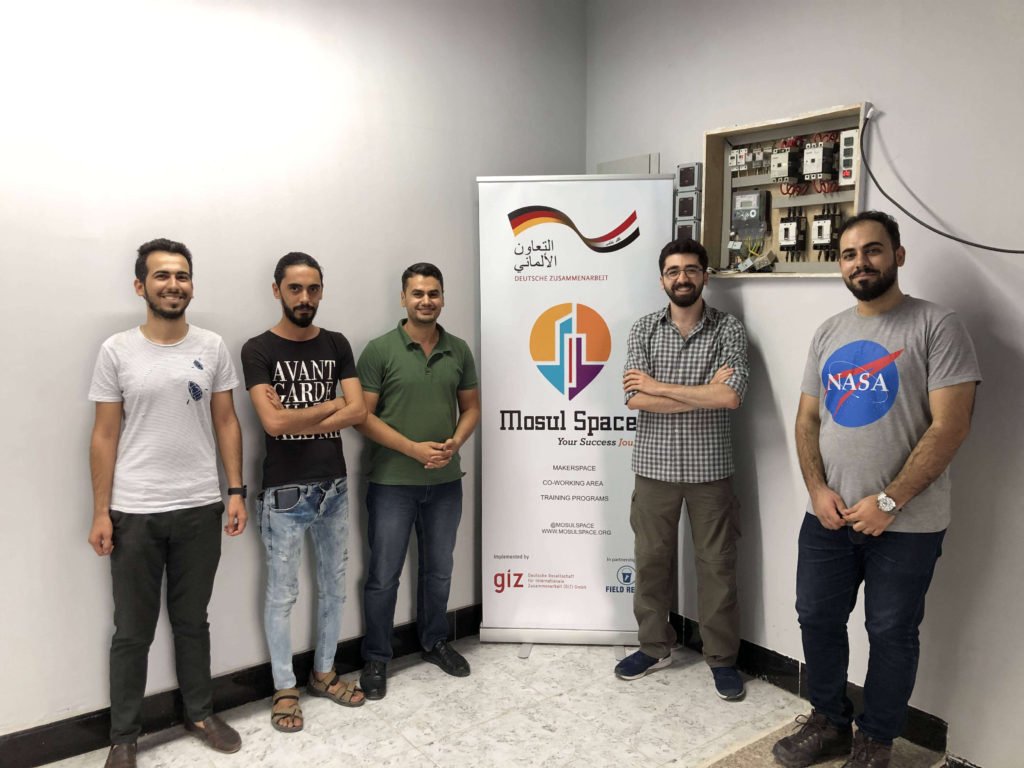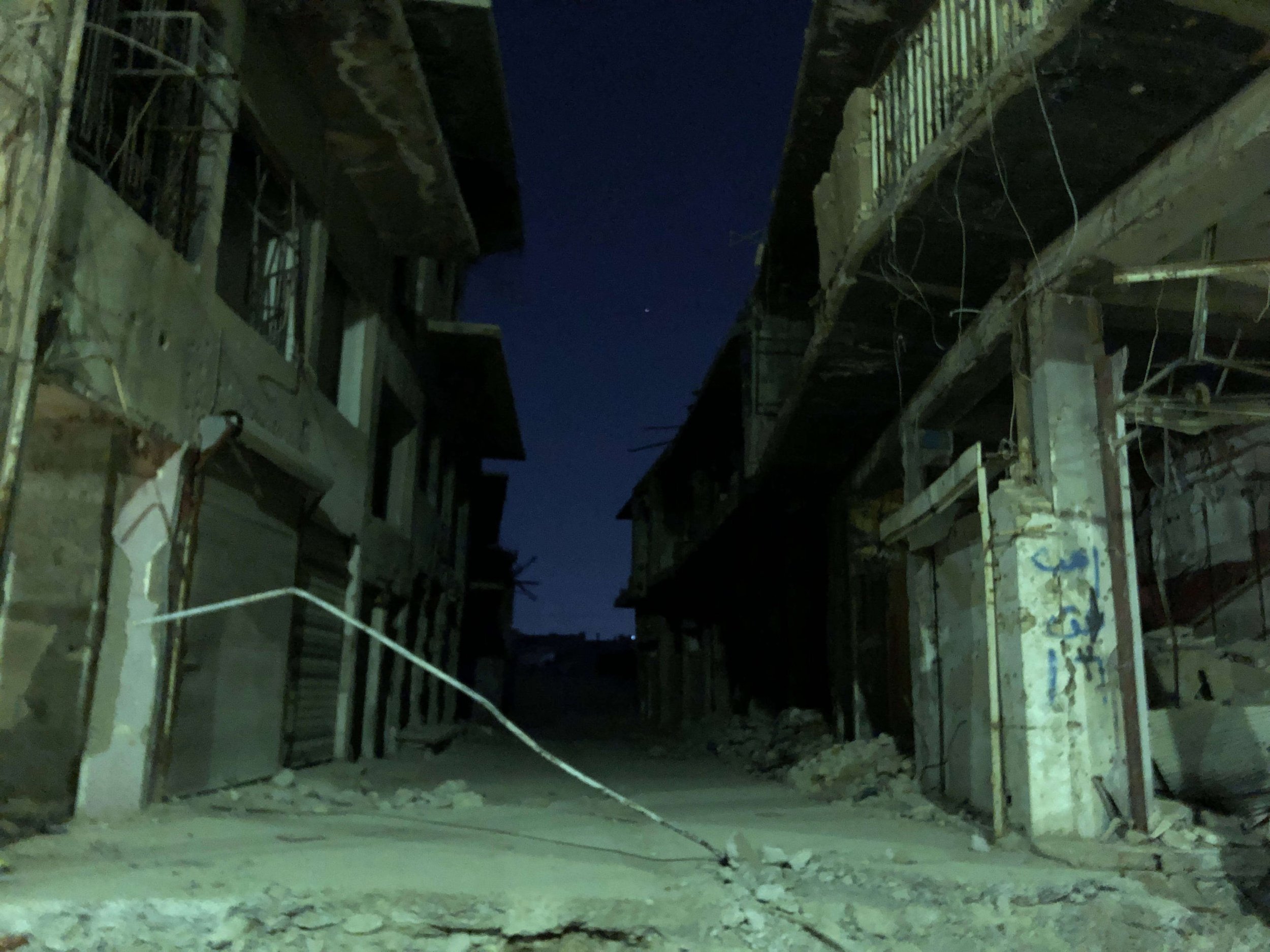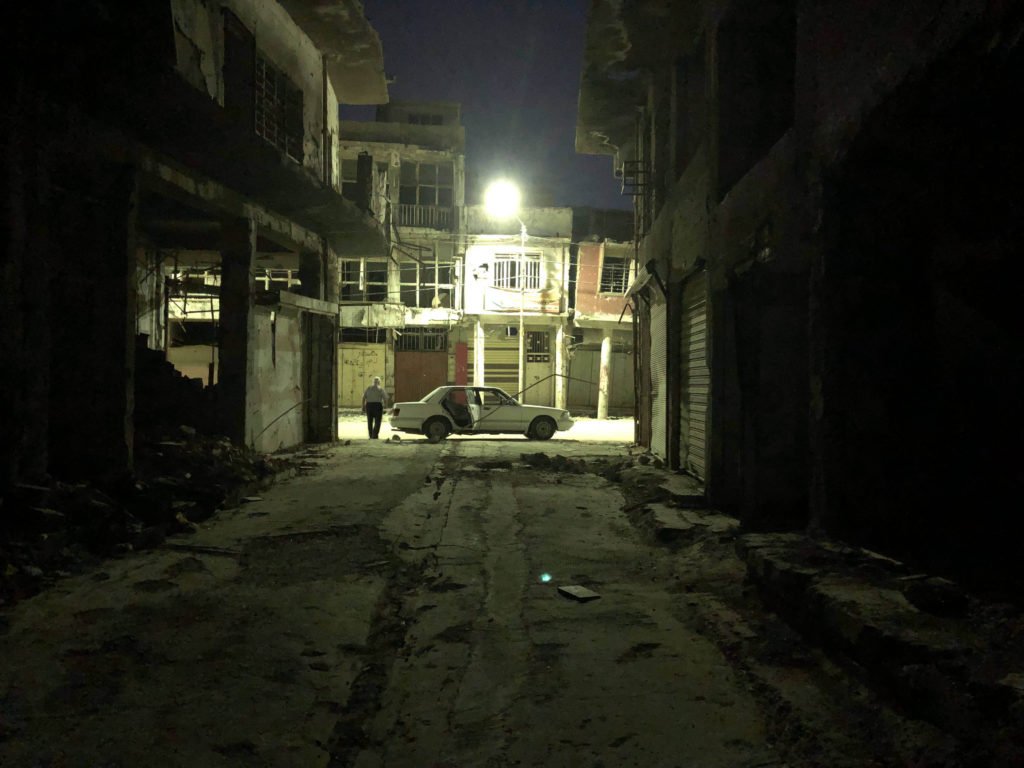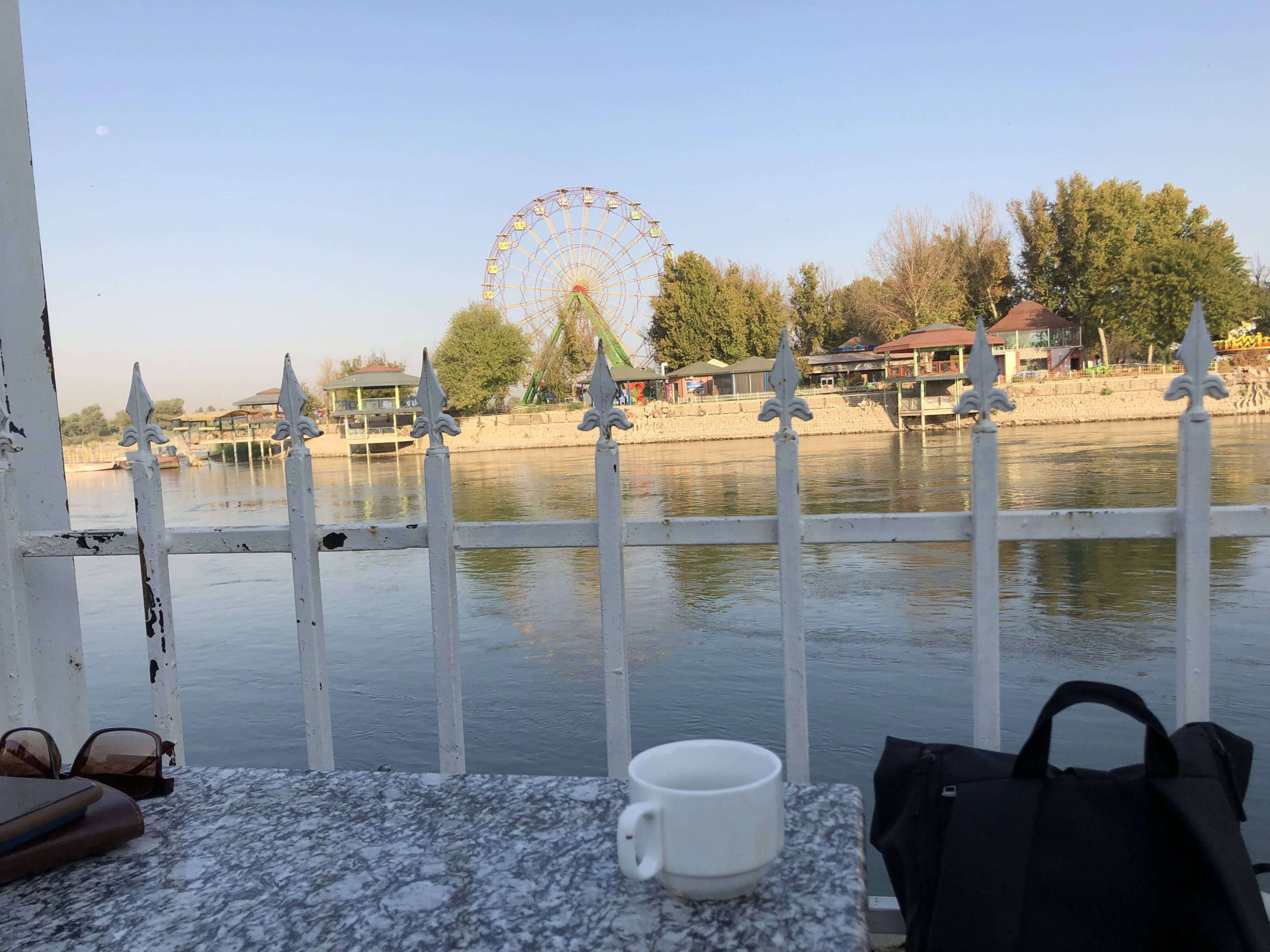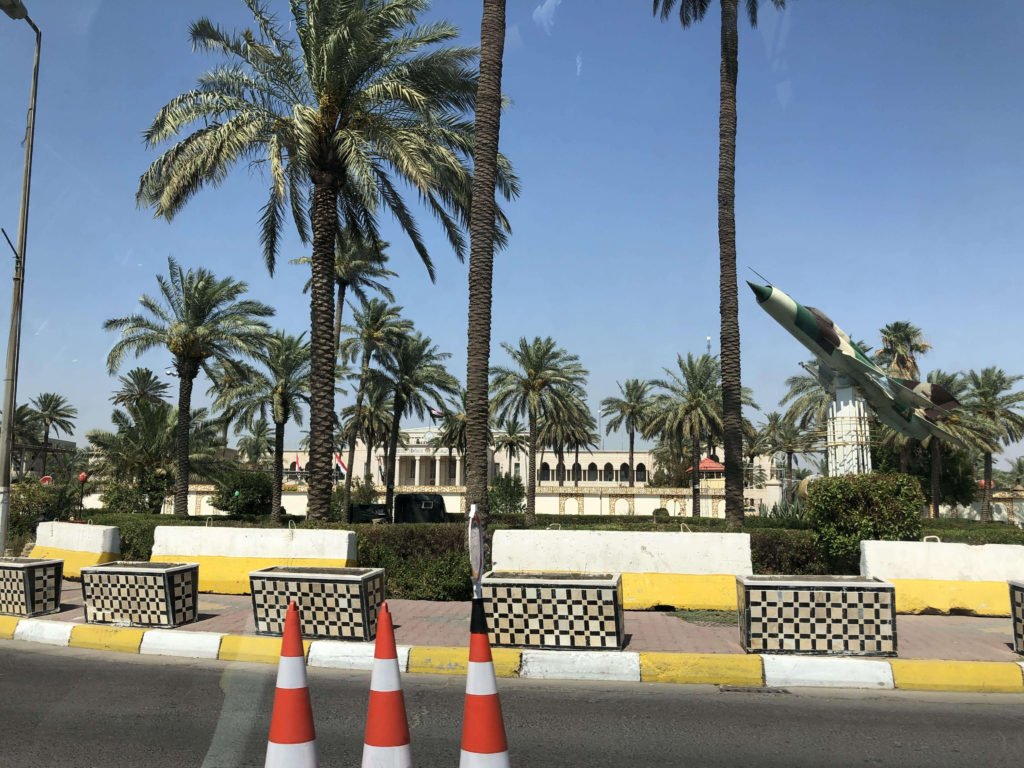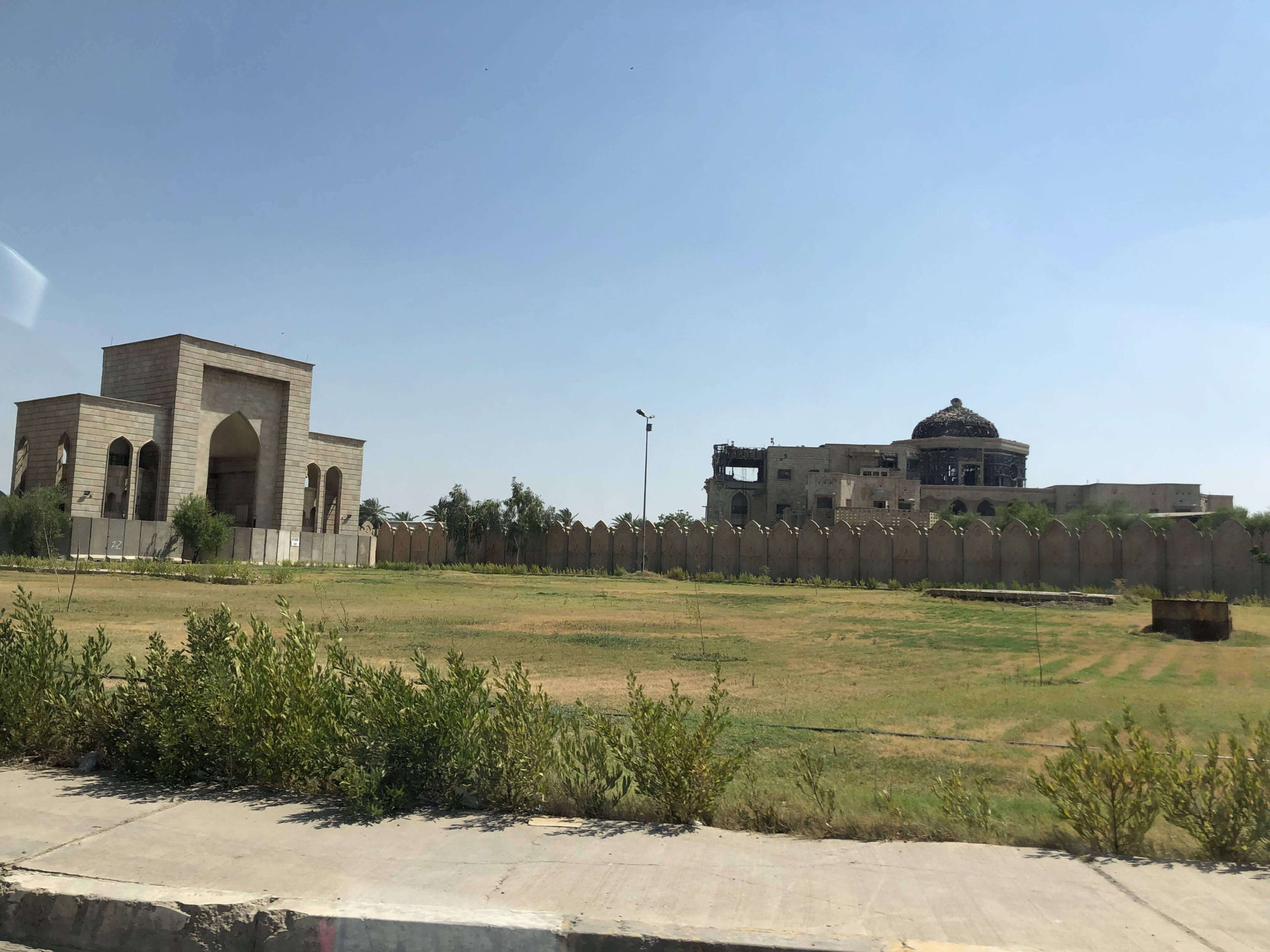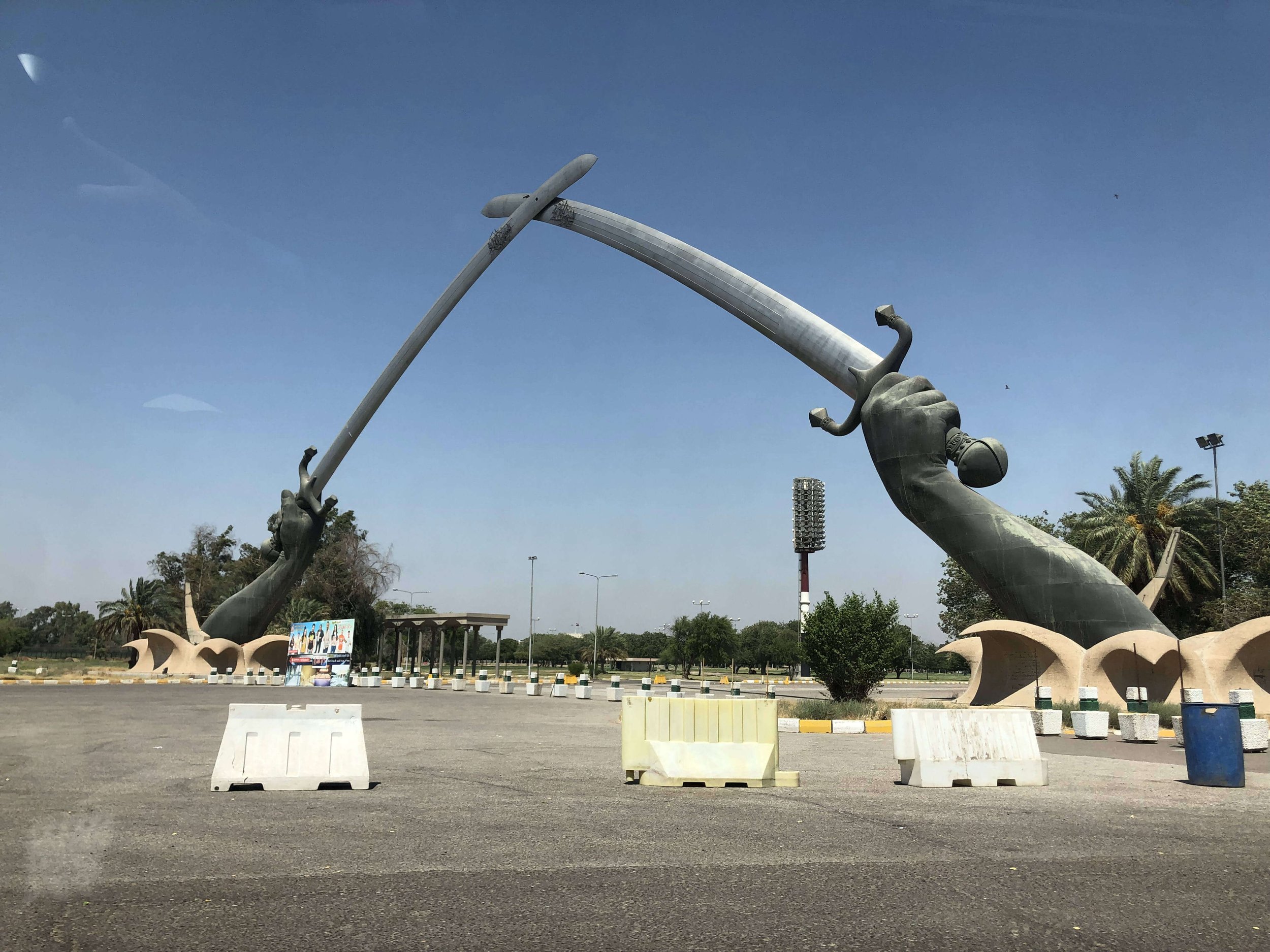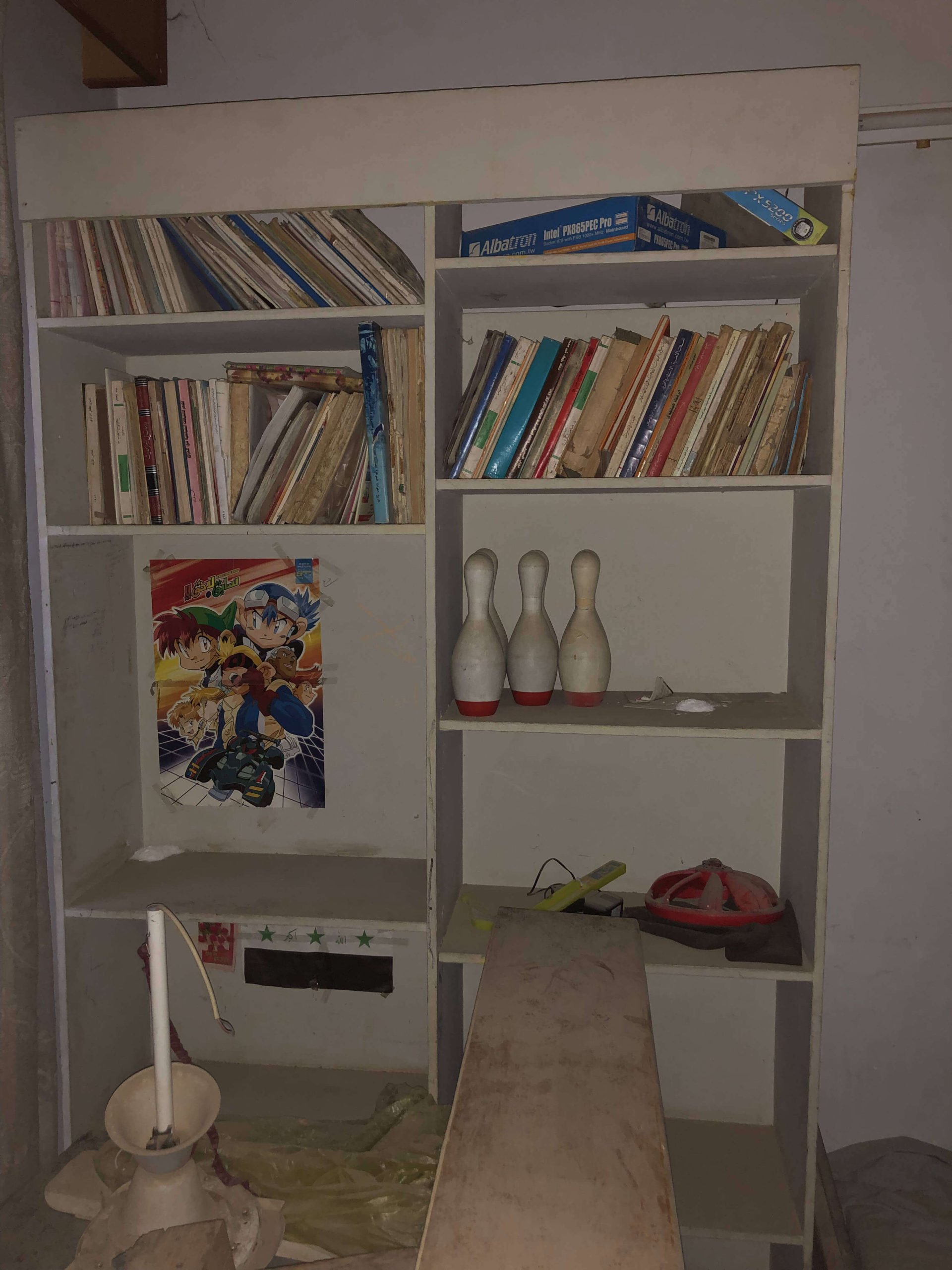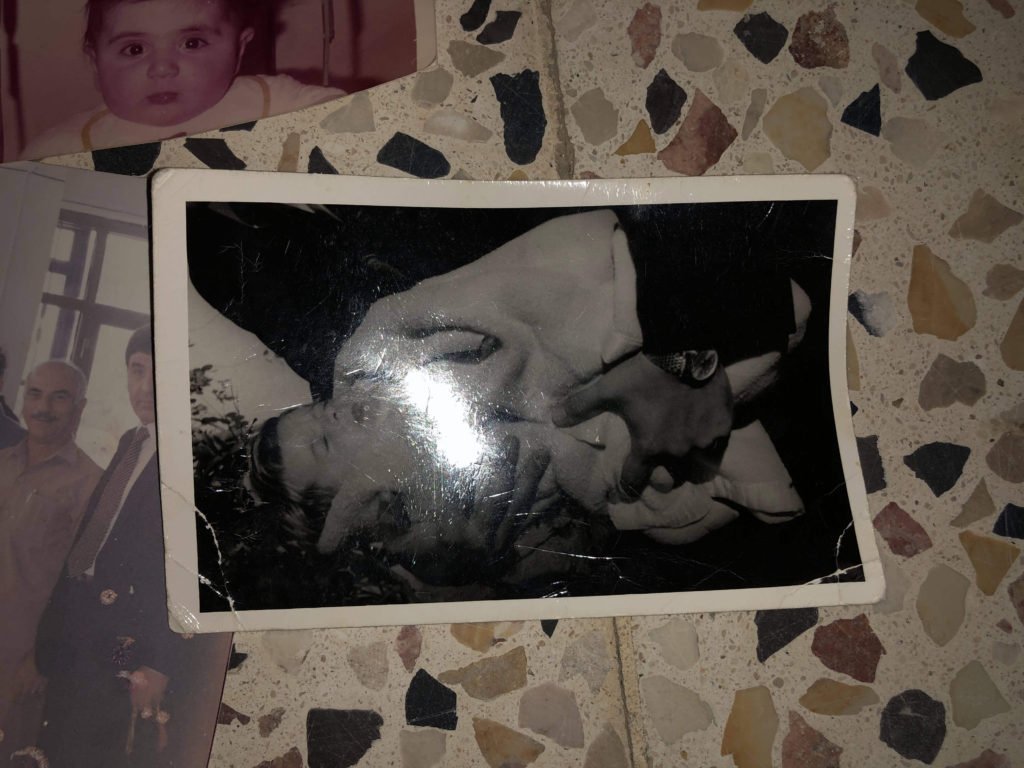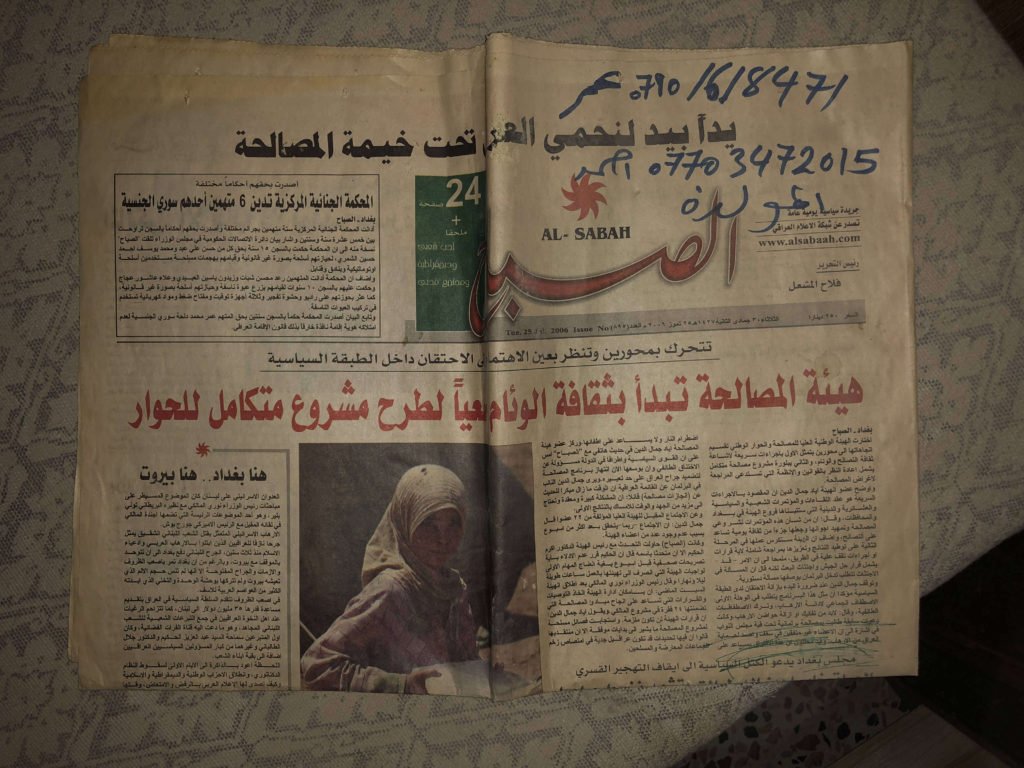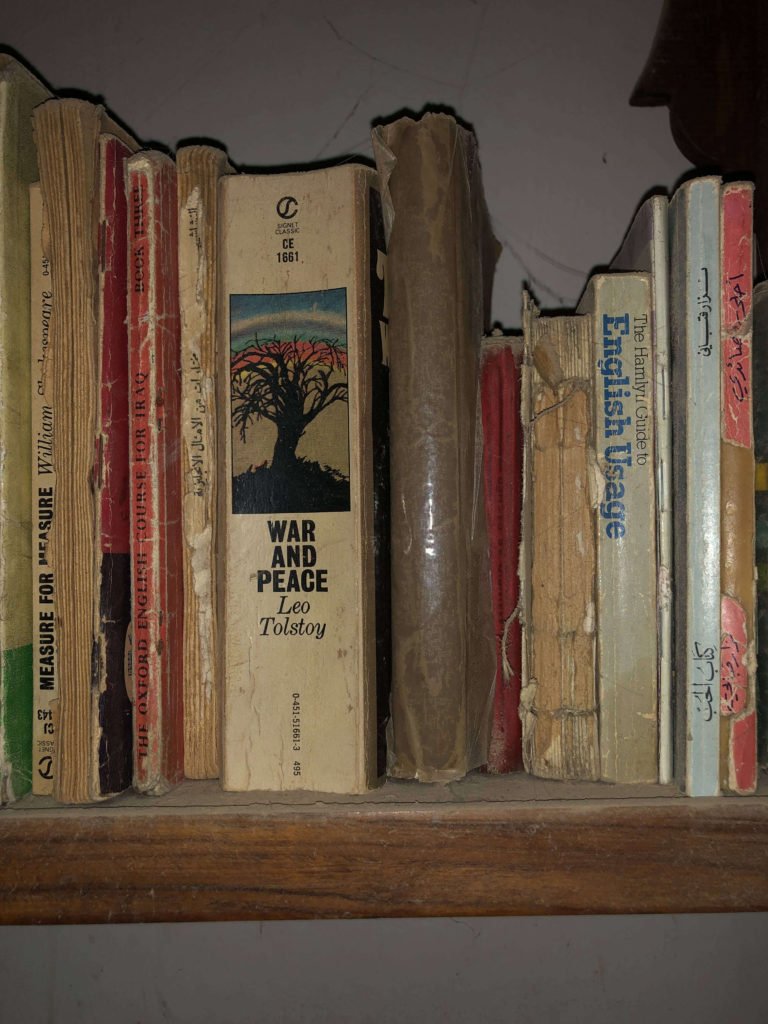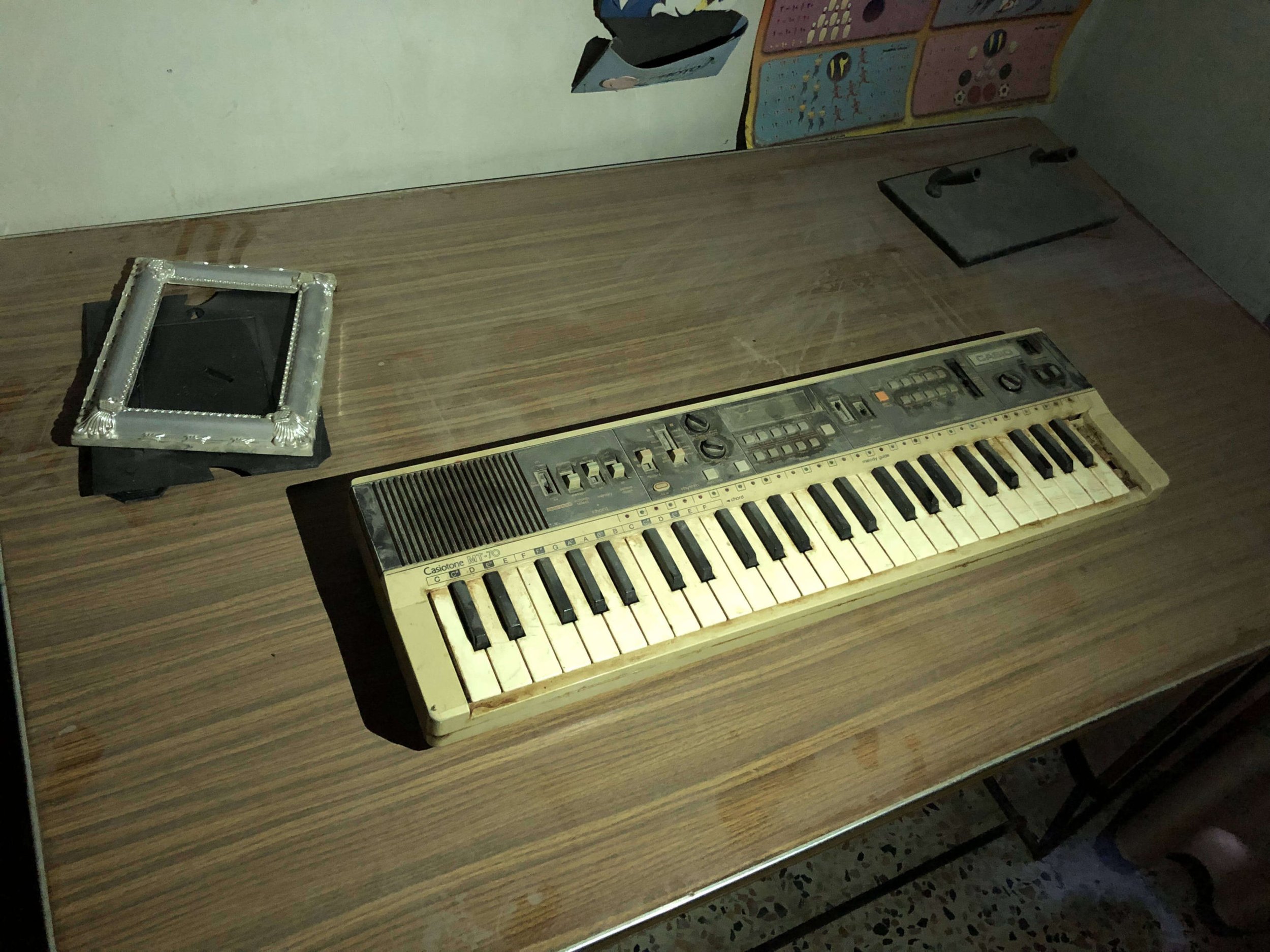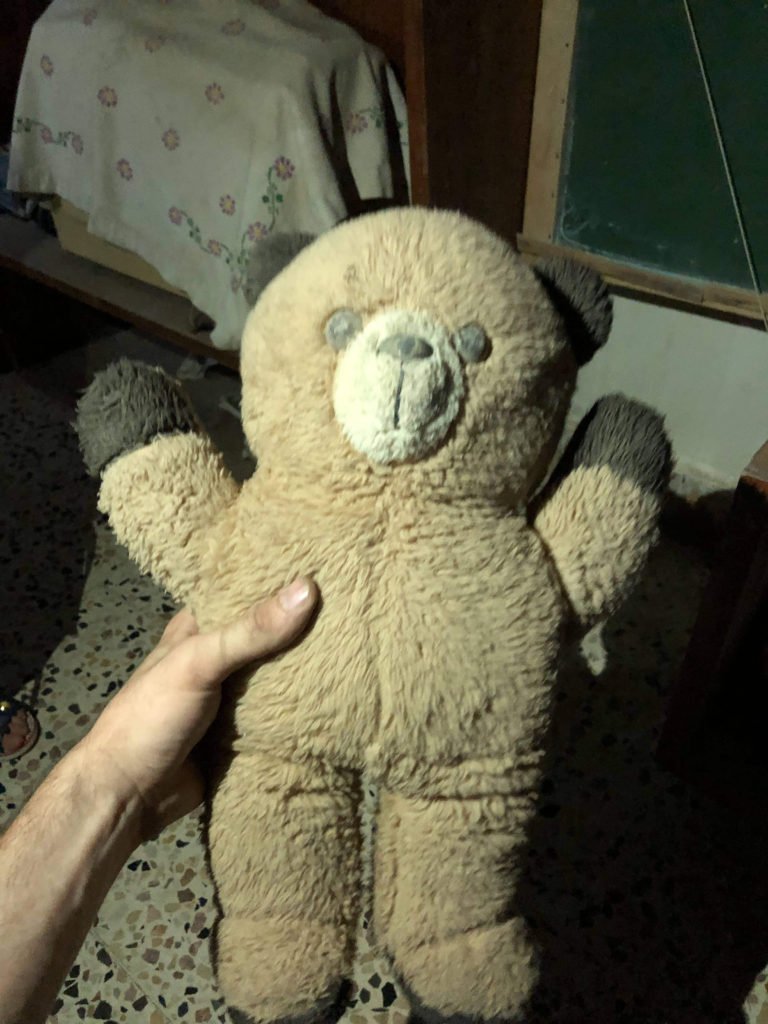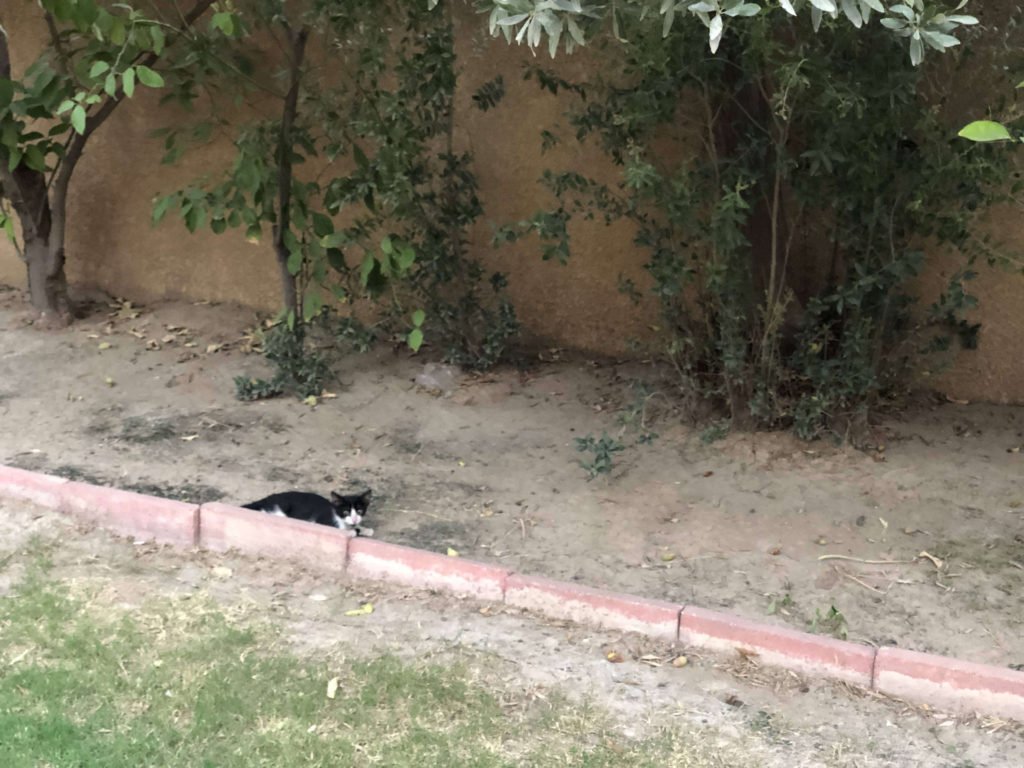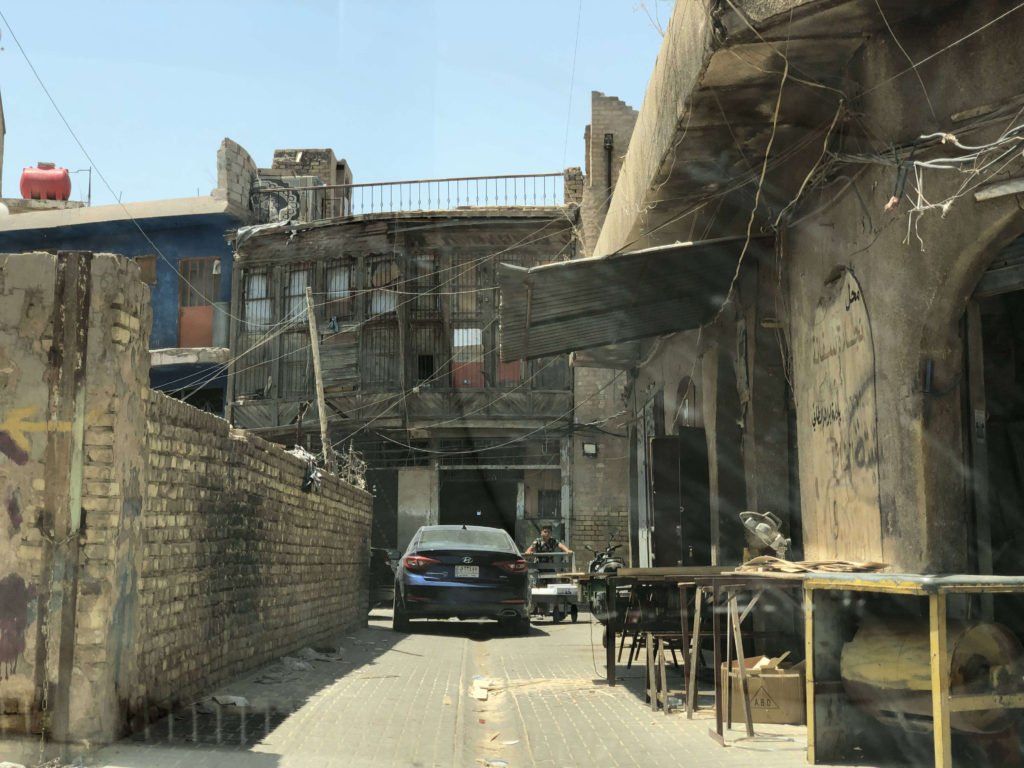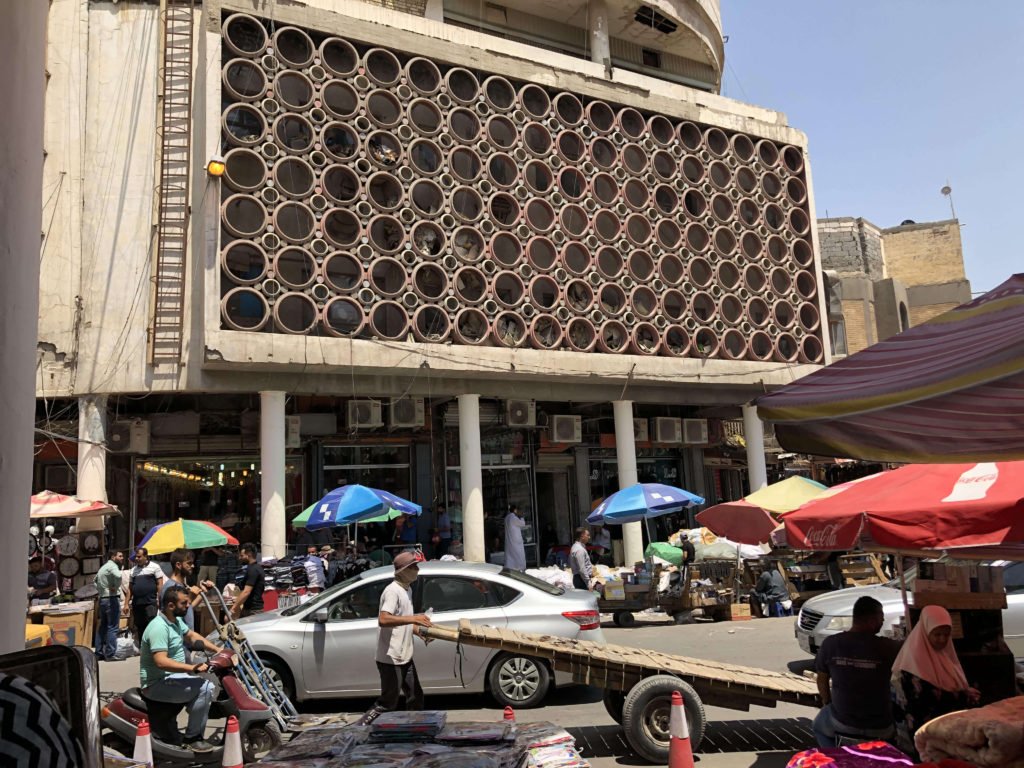13 Years Next Door
After leaving my home 13 years ago, I finally took back what had been taken away.
Last year I got the chance to visit Baghdad after 13 years of living abroad, this trip was the highlight of the decade, seeing first hand the changes in the City, People, and Culture was very insightful. I left Baghdad after a failed kidnapping attempt by Al QAEDA in 2006, and never went back. These 13 mini-chapters, one for each year I’ve spent away from Iraq, are filled with personal, social, political, and cultural insights and stories that I witnessed in my visit.
DISCLAIMER: Most pictures were taken with a phone due to the difficulty of photography in Baghdad; all the pictures were taken by the author.
Chapter 1: A Sudden Departure
On a quiet August morning in Amman, enjoying the calmness of the weekend (I got lucky and managed to build a small career for myself in Jordan while waiting to go home) I was working remotely on small business support initiatives in Iraq, when I suddenly got a phone call telling me I have to be on the next flight in three hours to Baghdad, since my colleague’s visa was denied. I froze for a minute. I would be visiting home after 13 years of moving from one country to another, and from one place to another. I was still in disbelief while rushing to the airport and trying to figure out how to get on the flight. I had 20 minutes to pack for a trip I had been waiting for half my life.
I wasn’t sure what I expected, whether I was actually ready to go back or not. Memories of where I grew up in Baghdad had been fading away, like an image from an old dream, shoved in a box in the back of my head, collecting dust. I’m ashamed to say I had been keeping myself so busy with building a new life abroad that I forgot the box was even there, waiting for me to open it and reclaim what was taken away 13 years ago.
Chapter 2: A Foreign Welcoming
As we approached Baghdad international airport, my eyes were filled with tears; I was grasping at feelings that I had no idea existed, The two Iraqi businessmen sitting next to me, who takes the Baghdad-Amman flight weekly, didn’t know what was wrong with the guy sitting next to them—and neither did I.
I finally landed and my passport was stamped in Baghdad for the first time in over a decade, my enjoyment of this moment was cut short by the border security officer yelling “YALLA YALLA NEXT HABIBI.” I exited the airport and had been told there would be someone waiting for me. The first thing I saw was a convoy of seven black American bulletproof SUVs with about a dozen marines surrounding the airport entrance. As I was standing there trying to comprehend the situation, one marine asked me to move aside as there were US officials walking right behind me. This was two days after the first Israeli airstrike against Iraq in over 38 years, and the US Embassy in Baghdad was on standby for a potential retaliation attack from Iran and Iranian-backed groups who control the neighborhoods surrounding the US Embassy. Between all the foreign planes, soldiers, and flags, it felt like my country was still stuck in 2003.
So that was the day I was sent to Baghdad to see how my organization could support small-business and startups in Iraq. It sounds a bit naive, and it’s true that it wasn’t the best timing, but there will always be something going on and if we wait until we solve all our problems before we start to rebuild our country then we’ll be waiting for a while.
Back at the airport, right behind the convoy was a middle-aged guy waving and asking if it was me. We walked between the marines, got into his car and he drove me through Baghdad to my hostel, complaining about the five minute delay at the security checkpoint. This made me laugh, when I left in 2006 you could be killed at those checkpoints if you had the “wrong” faith. That first ride across where I had spent the first half of my life was priceless. I was glued to the window, Contemplating the city where I was supposed to have grown up.
Chapter 3: Sanctions, Millennials, and Girls’ Bicycles
I spent the next few days trying to suppress my feelings and focus on work and meetings. It took me a few days to comprehend the fact that I was home and that it wasn’t a dream. I spent the first two days meeting with as many people as I could, from government officials to high school students, and I spent the majority of my time with the youth of Baghdad—a generation born during the longest war in the 20th century and during economic sanctions. During this time, the elites were barely affected while the middle-class couldn’t afford diapers. And this was the country with the third-largest GDP after the U.S. and U.K. back in 1979. Those first few days in Baghdad, I met the new face of Iraq—a generation that had been strangled their whole lives by many hands, but now they’ve started to explore new frontiers and possibilities. They are young professionals, scientists, and artists pursuing their careers, and always talking about their communities’ challenges before their own. It drew a smile on my face.
I met Mariam, a young woman who works in the communications sector in Baghdad. She spent an entire day with me, helping me catch up on what I had missed, from women’s rights and role in Iraq to the best burger joints in town. She spoke with a spark in her eyes about how life has improved for female workers and how some of the social restrictions are “slowly but steadily” being washed away, like how girls riding bicycles had previously not been acceptable in many places in Iraq. “It’s the way we saw our forefathers do it” said another man, but Iraqis are now seeing that some of those social contracts need to be renegotiated.
Chapter 4: How to Strangle a City, for Dummies.
Baghdad hasn’t got rid of the war atmosphere yet, as compounds, concrete walls, and checkpoints still exist. It felt like the entire city was a young, skinny 4th grader trying to make his way in a hallway packed with an angry high-school football team. It’s a city that had to survive while parts of it were torn apart and turned into a compound that’s out of reach of citizens every day. A large percentage of the city’s area have been turned into large embassies and military compounds, and what used to be a ten-minute car ride could take you hours now.
Thankfully, we now have our first democratically-elected government in the history of Iraq. For decades, during the eras of the Iraqi Monarchy, Ottoman rule, Communist Ba’ath Party, and the post-war pseudo-Iraqi government, we never chose our political representatives, so it was a nice thing to have for a change. In an effort to gain the support of the people, the new government (that took office in 2018) removed 90% of the concrete walls and checkpoints and stationed the military outside the city’s borders, which gave Baghdad a new vibe. It even made people more tolerant and secular. The overall atmosphere of society improved, and even human rights violations decreased. Who would have thought that when you don’t see army tanks and checkpoints with barbed wire on your way to work, you tend to feel better?
During those days in Baghdad, I was smiling like an idiot on my way to work every morning. A Careem driver even told me that I was the happiest passenger he had ever driven. Baghdad is now without walls, literally and figuratively.
Chapter 5: Home is Where the Heart is.
I thought I was unique going back to Iraq after all this time, that I was special for coming home. It took about 24 hours to realize how wrong I was. On my second day, I met Ali, a young engineer who came back to Baghdad after 15 years in Canada and opened a business back home. He told me he had felt like something was missing within him, that his spirit and the fire in his heart had faded away in the dark and cold winters on the other side of the world. He moved from a city with one of the best qualities of life to a city with one of the poorest, yet he was happier than ever.
I also met Murtatha, a producer with the BBC in London who came back after 18 years abroad to work in the media and entertainment industry in Baghdad. His two kids barely speak Arabic, but they’re enjoying life away from their grey and foggy London upbringing.
I also met my counterpart, a young student in a Baghdadi cafe who came to talk with me because he heard me speaking in his dialect on the phone. He was a Jordanian living and studying in Baghdad with his family—for years I had lived in his city and he lived in mine. We had one of the most interesting conversations of my life; we both wanted to get inside the other person's mind and live each other's memories. Many before me had already gotten that one-way ticket to my homeland. I only wish I had had the courage to do the same.
Chapter 6: Meeting your Lover’s Friends
One of the milestones in any romantic relationship is meeting your significant other’s friends, and it’s the same thing in Iraq; I couldn’t just go to Baghdad and call it a day. Over the next few weeks, I took several flights across Iraq. I went south, to Al-Mada'in, where we had to drive through an old secret Iraqi facility for uranium enrichment. The town is still radioactive today, and for someone who used to work with diplomats in Nuclear Security and Counterterrorism, I never thought I’d visit a post-nuclear site. The radiation was stable but above normal, yet people were more concerned with the lack of water, electricity, and security more than the radiation.
My next destination was Najaf, one of the holy sites in Iraq. I learned things the mainstream media never mentioned, pages of religious history torn and hidden from the average citizen like myself. I was staying in a shared room with other young men. Haider was an Iraqi-German medical engineer, and Mostafa was a young entrepreneur from Mosul who had been a prisoner of ISIS. His crime was owning banned books like the Holy Bible, and he was scheduled to be executed in one of ISIS’s famous recruitment videos. He was chained and blindfolded for four months—until a missile hit his prison and made a crack in the wall large enough for him to escape, leaving behind the bodies of his cellmates. You could write an entire book about each and every person in Iraq—39 million unique stories to share with a world that has already moved on to other conflicts.
Chapter 7: ISIS Birthday Gift
A month later I went to Erbil, a safe haven in a war-torn country. The Kurds managed to keep their territories safe from terrorism and organized crime, which helped the city to become a pseudo-capital of Iraq. The UN compound in Erbil is larger than the one in Baghdad, for example, and most INGOs have established their HQs in Erbil. You could argue that safety is the main reason why the Kurdish capital is flourishing, though having one of the best Kabab shops in the region also might have persuaded some Country Directors to set up their headquarters there.
My final destination was Mosul, my birthplace, and a city that was held hostage by ISIS for three years. Time really stands still when the morning prayer echoes in the streets of Mosul; it’s a place filled with religious, historical, and cultural sites. I spent my time differently here, walking alone for several hours at a time, witnessing the destruction and hearing the fragmented stories of the horrors that the residents went through, and my God, there are many—from mass graves to militias fighting over land ownership, to lack of infrastructure and a failing healthcare and education system—all of which people survived, except for the most vital challenge: unemployment. When the main employer (the local government) stopped hiring new staff due to a budget deficit, that was the last nail in the coffin of Mosul.
The fall of Mosul took place one day before my birthday on June 8 in 2014. It was by far the most life-changing event in my life; shortly after, I quit my job in the private sector alongside my goals and dreams in that field and joined the UN to work with Iraqi & Syrian refugees fleeing ISIS. I restarted my career with 10% of my previous salary and learned as much as I could about the refugee crisis. I joined the humanitarian sector thinking I’d help out for a couple of years and then get back to my old life; I didn’t realize then that the region would be unstable for this long, and today, five years later, I know it’ll take a lifetime, if not more.
Despite all of the sadness, I felt visiting Mosul, it was a long overdue trip. I saw my parents for the first time in a long time, my favorite childhood Iraqi sweets shop, and the Tigris river. Also, it turns out that one of my cousins punched an ISIS solder in the face and got away with it—he’s my new hero. My sister gave birth to a baby boy named Ibrahim just months after ISIS had taken over the city, and when I saw him for the first time I was filled with the joy of meeting him as well as the sadness of missing out on his childhood; he was three years old the first time we met.
Chapter 8: The Assignment
My mission to Baghdad was simple: answer only three questions: 1) What is the investment readiness of Iraqi startups and SMEs? 2) How can we help grow those businesses? 3) How engaged is the local government and policymakers in private sector development? It’ll later take me and my team several months to answer these questions.
Iraq is a unique place—a troubled mother with disobedient children fighting over their share of the house while it's on fire. Yet, this hasn’t stopped the youth of Iraq from evolving rapidly and becoming increasingly integrated. As new challenges appear, there is a growing need for talented entrepreneurs with an understanding of management, creativity, and technology. It has been my professional mission for several years now to understand these local economic hubs in the middle east and devise strategies to tackle challenges such as unemployment and brain drain, and I’m happy to say that we’re slowly but steadily moving in the right direction.
In my brief visit, I met with the Central Bank, a couple of politicians, investors, technology and communication specialists, military and security experts, many entrepreneurs, and more. For 95% of my trip, I was listening to people and yet I barely understand the complexity of Iraq; I had been away for too long, and even living next door was too far away. One of my favorite lines from The Simpsons is “Walls that keep out danger, keep out knowledge” we still have many walls to climb, walls of knowledge, and sometimes even blast walls.
Chapter 9: Remnants of the past
As I walked in the streets of Baghdad it’s impossible to ignore all the Soviet-style mega structures scattered across Baghdad—large facilities that stood the test of time (and laser-guided missiles), now abandoned, serving as a reminder of a fallen empire decades ago. I had flashbacks of military parades and nationalistic songs as we drove by one of Saddam’s palaces. In the midst of these emotions, I remembered the words of an Iraqi writer “We used to have security but not freedom, now we have freedom but not security.” which bares the question, which one is better? That’s a story for another time.
Those Saddam era buildings also serve as a benchmark for current and future policymakers and politicians; there ought to be a better regime than the one we had before them. I’m not sure if this benchmark is working or not, but it was interesting to see how those remnants were preserved by the people.
Chapter 10: An Overdue Visit
Of all my dreams over the past 13 years, the one that never left my nights was the place I grew up in, my childhood home that was a safe haven for my younger self, only two doors away from the war outside. It was the only place that witnessed my childhood, as all my other old friends and classmates who I tried to reach out to were either six-feet under or across oceans.
Memories started flowing back as I reached my old neighborhood, both good and bad. I got in front of my home and my eyes swiftly shed tears as I walked with heavy legs, there was no electricity in the house and there was dust on everything, all I saw was a grey silhouette, I started going through the house, almost hearing the walls whispering “Welcome back son, what took you so long?” For some reason I went to my parents’ room before going to mine. The house had been abandoned for 13 years, but everything was in its place. My mother's make-up kit and my dad's collection of 80s ties were still there; it was something out of a Chernobyl documentary. As I walked into my childhood room I was surprised to see the posters of my favorite cartoons still hanging on the walls, my elementary school homework still on my desk. Mrs. Maysoon must be very angry at me, I thought. I should probably submit this to her before they put it on my permanent record.
While I was in my room, my brain unlocked a sequence of memories of my younger self, it felt like he was still in that room waiting for someone to come pick him up, I wanted to tell him: “hey little man, I know you’re scared but I wanted to tell you that things will turn out quite well for you and your family, you’ll struggle for a few years but then you’ll grow to be everything you’ve dreamed of, you’ll travel the world and meet people who respect you and love you, you’ll learn so much about the world outside these walls and you’ll end up helping many people, I just want you to know that what you’re going through right now will make you stronger and wiser, you’ll no longer have to deal with the fears of bad guys hurting you, no longer will you have to check for IEDs in the football field, I just wanted to tell you that it’ll all be alright, and I’m sorry it took me this long to come back, I was also scared of what I might find between these walls. Good luck kid, and thank you for everything.
I wanted to stay there the whole day but I had to leave shortly after; all I could take with me was a small plastic bag filled with old pictures and sentimental items from a life I barely remember. In the front yard, there was an almond tree that was given to my parents when I was born. I was glad to see it was still there, with a small kitten resting under it. I cried for the rest of that day.
Chapter 11: The Iraqi Guide to Social Cohesion
When I left Baghdad in 2006, Sunnis and Shia, Arabs and Kurds, and almost every ethnicity and religious sect were in conflict with one another. It was rare to come across a household without any martyrs or victims of war or torture. As a child, I barely understood why the Civil War was taking place. I remember asking my father back in 2004 if we were Shia or Sunni; it hadn’t been relevant until then, so I had never asked before. The conflict had started with a poor military decision to fund and arm certain groups to fight with one another in order to keep the resistance busy and distracted from targeting the establishment in Iraq. The strategy worked, but with the collateral damage of nearly a million civilians.
And now, in 2019 in Baghdad, I wasn't sure what to expect. I was surprised that during my entire trip I didn’t hear anyone say what sect they belong to, the Iraqi people had had enough, and now there are Sunni mosques in Shiat’ neighborhoods and vice versa; this dark page of our history had finally been closed. I use to be a bit pessimistic about cohesion in Iraq—I thought it would take decades to achieve, but I'm happy to say that it only took a few years for people to realize they were being manipulated and kept busy with a made-up conflict with no end in sight.
Chapter 12: Iraqi Teenagehood
Iraq now is going through what every teenager goes through in life. We have friends that are using us, we’re not covered by any healthcare plan, barely paying attention to our education, and we’re cheating the whole time. Like many teenagers, we’re also stuck between two lovers: the US and Iran. After the defeat of ISIS, the next challenge is rebuilding the country's entire social service system, and addressing the same issues Iraqis have been struggling with for decades now: corruption, education, healthcare.
As my country slowly graduates from high school and starts to mature both economically and socially, we’ll notice a shift in the Iraqi narrative in the coming years as we start to open up more to the world and learn new values and concepts that we can apply in our own societies. Countries do not inevitably improve over time—they improve when a large group of people innovate and dedicate their lives to the betterment of their nations. The world is filled with examples from South-East Asia to Africa and Latin America. Iraq is still in the early stages of … everything, and the Iraqi people still have miles and miles to go.
Chapter 13: Flowers & Hurricanes
Iraq has had its fair share of challenges. The reality is that for every decade since the great Iraqi revolution of 1920, Iraqis have seen a conflict of some sort in this country; Who knows if it will be different for the next generation.
I bought a black ring from one of the shops in the old bazaar in Baghdad as a reminder of this trip. In Islam, it’s believed that the black stone in Mecca was once a bright white stone, but it became dark due to the wrongdoings of the mortals. For me, it’s a reminder that we can always strive for better, and to put the needs of the many before the needs of the few. It’s a lesson we’re still learning in the land of two rivers.
What started as an unexpected work trip turned into a journey back through my childhood to reclaim what was taken away, reclaiming my identity, my past, and my future. When I left Iraq in a rush back in the summer of 2006, I had packed some clothes and a couple of notebooks, but I had forgotten to pack my soul. I left it there, wandering between the rivers of my homeland all this time. It brought some comfort knowing that I wasn’t completely lost, that part of me had always been home.





